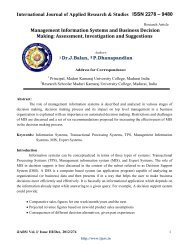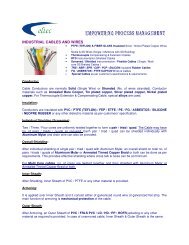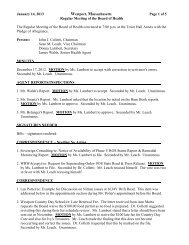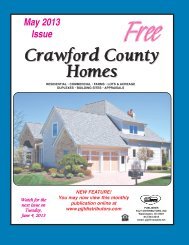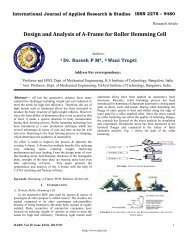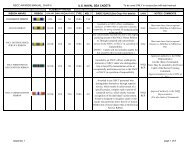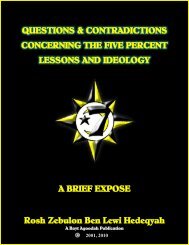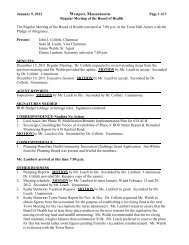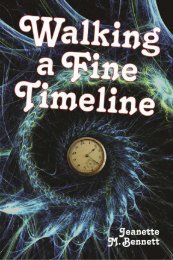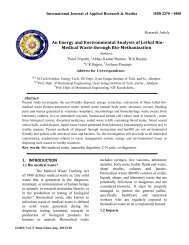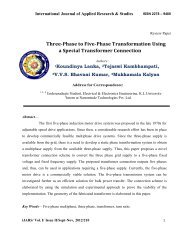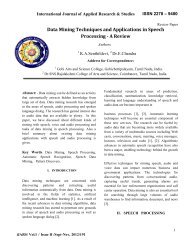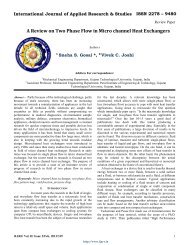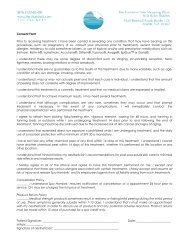Leisurely Motorcycle Riding - Hgsitebuilder.com hgsitebuilder
Leisurely Motorcycle Riding - Hgsitebuilder.com hgsitebuilder
Leisurely Motorcycle Riding - Hgsitebuilder.com hgsitebuilder
You also want an ePaper? Increase the reach of your titles
YUMPU automatically turns print PDFs into web optimized ePapers that Google loves.
<strong>Leisurely</strong> <strong>Motorcycle</strong> <strong>Riding</strong>: A Phenomenological study of the psychology of leisurely - 20 –<br />
motorcycle riding.<br />
Freud, S. (1910). Extracts from Freud‟s article The Origin and Development of Psychoanalysis: I of V.<br />
American Journal of Psychology (21) 181-218<br />
James, W. (1904). Does 'Consciousness' Exist Journal of Philosophy, Psychology, and Scientific Methods,<br />
(1) p. 477-491<br />
Jung, C. (1957). The Portable Jung. Cambell, J. (Edt). New York, NY: Penguin.<br />
Farber, M., & Hall, T. (2007). Emotion and Environment: Visitors' Extraordinary Experiences along the<br />
Dalton Highway in Alaska. Journal of Leisure Research, 39(2), 248-270.<br />
Feist, J. & Feist, G. (2009). Theories of Personality (7 th Edt.). New York, NY: McGraw-Hill.<br />
Funk, D.C., & James, J. (2001). The psychological continuum model: A conceptual framework for<br />
understanding an individual's psychological connection to sport. Sport Management Review,<br />
4,119-150.<br />
Griffin, J. (2005). Recreation Therapy for Adult Survivors of Childhood Abuse: Challenges to Professional<br />
Perspectives and the Evolution of a Leisure Education Group. Therapeutic Recreation<br />
Journal, 39(3), 207-228.<br />
Haskell, L. (2003). First stage trauma treatment: Ë guide for mental health professionals working with<br />
women. Toronto, ON: Centre for Addiction and Mental Health.<br />
Harris, C. R., & Christenfeld, N. (1996). Gender, jealousy, and reason. Psychological Science, 7, 364-366<br />
Hart, C. (1998). Doing a Literature Review. Thousand Oaks, CA: SAGE Publications<br />
Heise, D. R (1979). Understanding events: Affect and the construction of social action. Cambridge:<br />
Cambridge University Press.<br />
Hood, D., & Carruthers, C. (2007). Enhancing Leisure Experience and Developing Resources: The Leisure<br />
and Well-Being Model, Part II. Therapeutic Recreation Journal, 41(4) 298<br />
Houston, D., & Richardson, L. (2007). <strong>Motorcycle</strong> Safety and the Repeal of Universal Helmet Laws.<br />
American Journal of Public Health, 97(11), 2063-9.<br />
Hormuth, S. E. (1990). The ecology of self: Relocation and self-concept change. Cambridge: Cambridge<br />
University Press.<br />
Hunt, M. (2008). The story of psychology (2nd ed.). New York, NY: Random House.<br />
Hutchinson, S., Loy, D. P., Kleiber, D. A., & Dattilo, J. (2002). Leisure as a coping resource: Variations in<br />
coping with traumatic injury and illness. Leisure Sciences, 25, 143-161.<br />
Hyde, J.S. (2005). The Gender Similarities Hypothesis. American Psychologist, 60(6), p. 581.<br />
Iwasaki, Y., MacKay, K. J., MacTavish, J. B., Ristock, J. & Barden, J. (2006). Voices form the margins:<br />
Stress active living, and leisure as a contributor to coping with stress. Leisure Sciences, 28, 163-<br />
180.<br />
Jackson, S.A., & Eklund, R. C. (2002). Assessing flow in physical activity: The flow state scale and<br />
dispositional flow scale. Journal of Sport and Exercise Psychology, 24, 133-150.



